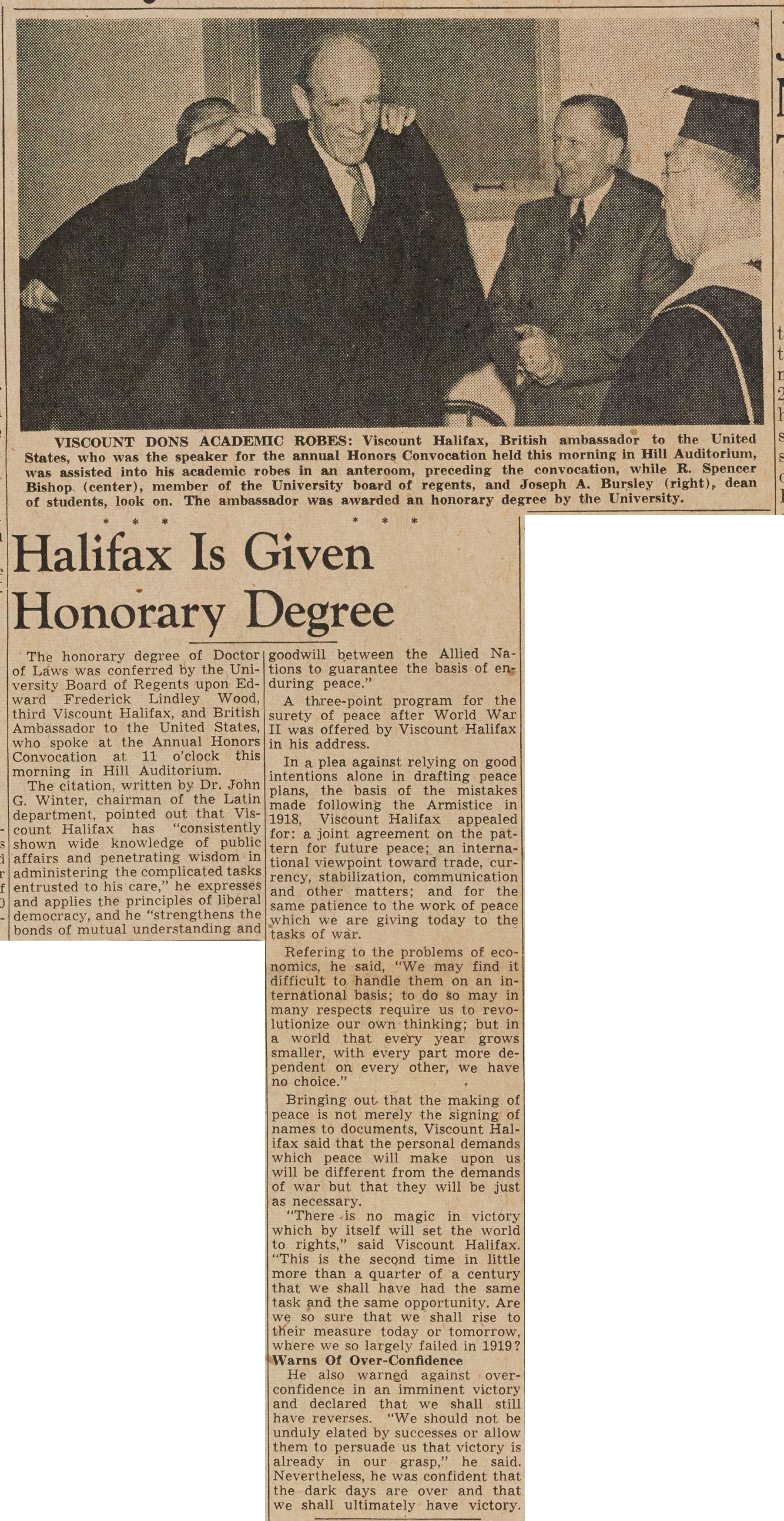Halifax Is Given Honorary Degree

VISCOUNT DONS ACADEMIC ROBES: Viscount Halifax, British ambassador to the United States, who was the speaker for the annual Honors Convocation held this morning in Hill Auditorium, was assisted into his academic robes in an anteroom, preceding the convocation, while R. Spencer Bishop (center), member of the University board of regents, and Joseph A. Bursley (right), dean of students, look on. The ambassador was awarded an honorary degree by the University.
Halifax Is Given Honorary Degree
The honorary degree of Doctor of Laws was conferred by the University Board of Regents upon Edward Frederick Lindley Wood, third Viscount Halifax, and British Ambassador to the United States, who spoke at the Annual Honors Convocation at 11 o’clock this morning in Hill Auditorium.
The citation, written by Dr. John G. Winter, chairman of the Latin department, pointed out that Viscount Halifax has “consistently shown wide knowledge of public affairs and penetrating wisdom in administering the complicated tasks entrusted to his care," he expresses and applies the principles of liberal democracy, and he "strengthens the bonds of mutual understanding and goodwill between the Allied Nations to guarantee the basis of enduring peace.”
A three-point program for the surety of peace after World War II was offered by Viscount Halifax in his address.
In a plea against relying on good intentions alone in drafting peace plans, the basis of the mistakes made following the Armistice in 1918, Viscount Halifax appealed for: a joint agreement on the pattern for future peace; an international viewpoint toward trade, currency, stabilization, communication and other matters; and for the same patience to the work of peace .which we are giving today to the tasks of war.
Refering to the problems of economics, he said, “We may find it difficult to handle them on an international basis; to do so may in many respects require us to revolutionize our own thinking; but in a world that every year grows smaller, with every part more dependent on every other, we have no choice."
Bringing out that the making of peace is not merely the signing of names to documents, Viscount Halifax said that the personal demands which peace will make upon us will be different from the demands of war but that they will be just as necessary.
"There is no magic in victory which by itself will set the world to rights," said Viscount Halifax. “This is the second time in little more than a quarter of a century that we shall have had the same task and the same opportunity. Are we so sure that we shall rise to their measure today or tomorrow, where we so largely failed in 1919?
Warns Of Over-Confidence
He also warned against overconfidence in an imminent victory and declared that we shall still have reverses. "We should not be unduly elated by successes or allow them to persuade us that victory is already in our grasp,” he said. Nevertheless, he was confident that the dark days are over and that we shall ultimately have victory.